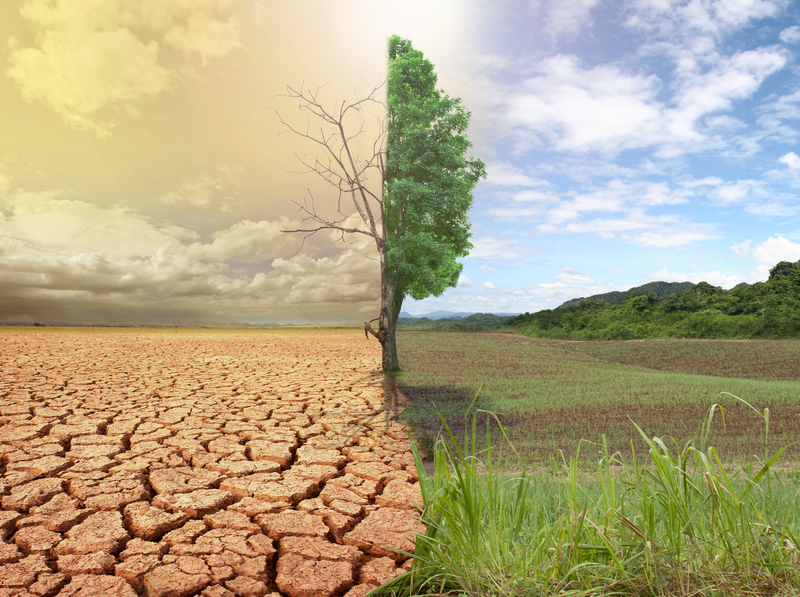Your Essential Guide to Handling PPE Waste Responsibly
In the wake of ongoing global health concerns, the use of Personal Protective Equipment (PPE) has skyrocketed. While PPE such as masks, gloves, gowns, and face shields are crucial for safeguarding public health, *improper disposal* has led to alarming pollution and environmental threats. If you're seeking practical, actionable advice on responsible PPE waste management, you're in the right place.
This guide provides in-depth insights into *safely managing PPE waste*, from best practices to environmental impacts, so you can contribute to a healthier planet while staying protected.
What is PPE Waste?
PPE waste refers to used or discarded protective gear designed to guard against health hazards, especially pathogens. It covers a wide array of items, including:
- Disposable face masks and respirators
- Nitrile, latex, or vinyl gloves
- Protective eyewear and visors
- Surgical gowns, aprons, and shoe covers
- Face shields
Although PPE protects individuals in healthcare, industrial, and public settings, its *single-use nature* generates significant waste. Mismanagement can not only pose health risks but also lead to lasting environmental consequences.

Why Is Responsible PPE Waste Management Important?
- Health and Safety: Improper disposal may spread infections or hazardous materials, endangering public health and sanitation workers.
- Environmental Impact: Most PPE is made of plastics like polypropylene and can persist in the environment for centuries, contributing greatly to plastic pollution.
- Wildlife Protection: Discarded PPE can entangle animals or be ingested, causing injuries or deaths in marine and terrestrial wildlife.
- Regulatory Compliance: Numerous regions have strict guidelines for handling medical and hazardous waste; non-compliance can result in hefty fines.
Adopting eco-friendly PPE disposal practices mitigates these risks, supporting *sustainable waste management* and fostering community well-being.
PPE Waste: Scale and Impact
Since the COVID-19 pandemic, the world has witnessed an unprecedented surge in PPE waste production. According to the World Health Organization, more than 8 million tonnes of pandemic-associated plastic waste entered landfills or spilled into nature in 2021 alone. Hospitals, clinics, households, and businesses alike contribute to this mounting problem.
Common environmental issues caused by PPE littering include:
- Microplastic contamination of waterways and soils
- Blockage of drainage systems leading to urban flooding
- Increased carbon emissions from incineration of synthetic materials
- Greater landfill volumes, accelerating land shortages
This highlights the *critical need* for everyone, from healthcare professionals to everyday citizens, to adopt safe, responsible PPE waste disposal methods.
Best Practices for PPE Waste Handling
Whether you are in a medical, workplace, or home setting, these essential steps will help you dispose of PPE safely and responsibly.
1. Segregate PPE Waste from Regular Waste
- Place used masks, gloves, and other PPE in a dedicated, lined bin with a lid, away from regular household or office waste.
- If available, use visibly marked PPE waste bins colored yellow or red for easy identification.
2. Contain and Secure PPE Waste
- Double-bag PPE waste to prevent leaks or tears.
- Tie bags securely before disposing of them, especially if the waste has been in contact with potentially infectious material.
3. Follow Local Guidelines for PPE Disposal
- Check with local authorities or sanitation services for specific instructions on PPE waste disposal in your area.
- In medical or commercial settings, adhere to Biohazard Waste protocols, which may involve high temperature incineration or treatment before landfill disposal.
4. Never Litter or Flush PPE
- Do not throw PPE items in public spaces, water bodies, or toilets as it leads to environmental and public health hazards.
5. Protect Waste Handlers
- Ensure that those handling PPE waste--whether at home or in facilities--are equipped with their own protective gear and are trained on safe handling procedures.
6. Encourage Reusable Alternatives
- Where possible, use reusable face masks made from cloth, following proper sanitation guidelines to reduce disposable PPE dependency.
Disposal Options for PPE Waste
Depending on your setting--home, workplace, or healthcare facility--various options are available for safe PPE disposal:
- Household Disposal: Double-bag and dispose of PPE with other non-recyclable waste, unless advised otherwise by your local council.
- Medical Facilities: Use regulated medical waste bins, ensure collection and incineration or autoclaving by certified contractors.
- Commercial and Public Spaces: Install PPE drop bins for staff and customers; partner with licensed waste management providers for collection and final disposal.
Are PPE Items Recyclable?
Ordinarily, most single-use PPE is not recyclable through conventional systems due to contamination and material composition. However, advances in specialized recycling programs for PPE waste are emerging, with some companies now able to process and convert PPE into usable products.
If you're seeking to recycle PPE waste, look for:
- Collection points by accredited waste management companies
- TerraCycle PPE recycling initiatives
- Hospital or government-sponsored take-back schemes
Reducing Your PPE Waste Footprint
Alongside responsible PPE waste management, *waste reduction* plays a crucial role in environmental sustainability. You can minimize your ecological footprint by:
- Opting for reusable PPE (cloth masks, washable gowns) when appropriate, following recommended cleaning and disinfection protocols
- Purchasing wisely: Avoid stockpiling or using more PPE than necessary
- Supporting innovation: Choose products made from biodegradable or recyclable materials where available
- Spreading awareness about correct PPE disposal among friends, family, and colleagues
The three R's--Reduce, Reuse, Recycle--apply to PPE waste management just as they do for other waste streams.
The Impact of PPE Waste on the Environment
The environmental impact of PPE waste cannot be understated. Single-use masks and gloves persist as microplastics, leaching chemicals and threatening ecosystems.
- Oceans and Waterways: Billions of disposable masks enter aquatic environments, harming marine life that mistake them for food.
- Soil and Agriculture: Disintegration of PPE adds microplastics to soil, impacting agriculture and entering the food chain.
- Incineration: While effective for sterilizing medical waste, burning PPE releases toxic fumes unless performed at specialized facilities.
- Landfills: PPE can take up to 450 years to decompose, slowly releasing pollutants over time.
Effective PPE waste handling is vital not only for health and safety but also for preserving our ecosystems.
Case Study: Community Action against PPE Litter
Several cities worldwide have launched campaigns to combat PPE littering. For example, in the UK, the "Don't Drop Litter, Bin It!" initiative involved installing PPE-specific bins, public awareness drives, and stricter penalties for littering, resulting in noticeably cleaner public spaces and reduced environmental impact.
Regulations and Policies Around PPE Waste
Countries and regional organizations have implemented regulations for safe disposal of PPE waste:
- OSHA (United States): Requires that all PPE used in healthcare and hazardous environments is handled as regulated waste.
- WHO Guidelines: Advise double-bagging, secure containment, and high-temperature incineration for infectious PPE waste in medical settings.
- EU Waste Framework Directive: Identifies PPE used in COVID-19 response as healthcare or hazardous waste, subject to specific handling protocols.
Always stay informed on updates to local legislation regarding PPE waste to ensure legal and responsible disposal.
Innovations in PPE Waste Management
Technological advances and creative solutions are emerging to address the PPE waste problem:
- Biodegradable PPE: Companies are developing masks and gloves made from plant-based materials that decompose faster.
- PPE Recycling Systems: Specialized recycling programs collect and process PPE into pellets for industrial applications.
- Mobile disinfection units that treat and sterilize PPE waste on-site, reducing transport and secondary contamination risks.
Supporting these innovations and advocating for better infrastructure is key to future-proofing PPE waste management.
How to Safely Dispose of PPE at Home
Home users can take simple steps to manage PPE waste safely:
- Before disposal, cut ear loops on masks to protect wildlife from entanglement.
- Place PPE waste in a dedicated plastic bag, tie securely, and dispose of in your regular bin unless advised otherwise.
- Wash your hands thoroughly after handling used PPE.
- Keep PPE waste out of reach from children and pets until collection.
These habits can be easily adopted, reducing risks and supporting public health efforts.

Frequently Asked Questions About PPE Waste
Can I recycle disposable masks and gloves at home?
Generally, no. Most local recycling programs do not accept contaminated PPE due to health risks and material complexity. Look for specialized recycling programs if available.
Is burning PPE waste at home a good idea?
Absolutely not. Burning PPE at home can release harmful pollutants and should be avoided. Safe disposal means containment and using the recommended waste system.
Are biodegradable PPE options safe and effective?
Ongoing research suggests that certain biodegradable PPE can provide adequate protection for general use. For high-risk medical environments, always use products that *meet safety standards*.
Conclusion: Let's All Do Our Part in Managing PPE Waste Responsibly
The global surge in PPE use demands that we act consciously and responsibly. Responsible PPE waste management is not only about protecting ourselves and each other--it's an ethical obligation to future generations and the environment.
By following best practices, staying informed, and supporting innovations in PPE waste handling, each of us can make a meaningful difference. Whether you're a healthcare worker, employer, or community member, developing safe PPE disposal habits today contributes to a cleaner, safer world tomorrow.
Let's commit to responsible PPE waste disposal and help ensure a sustainable future for all.
